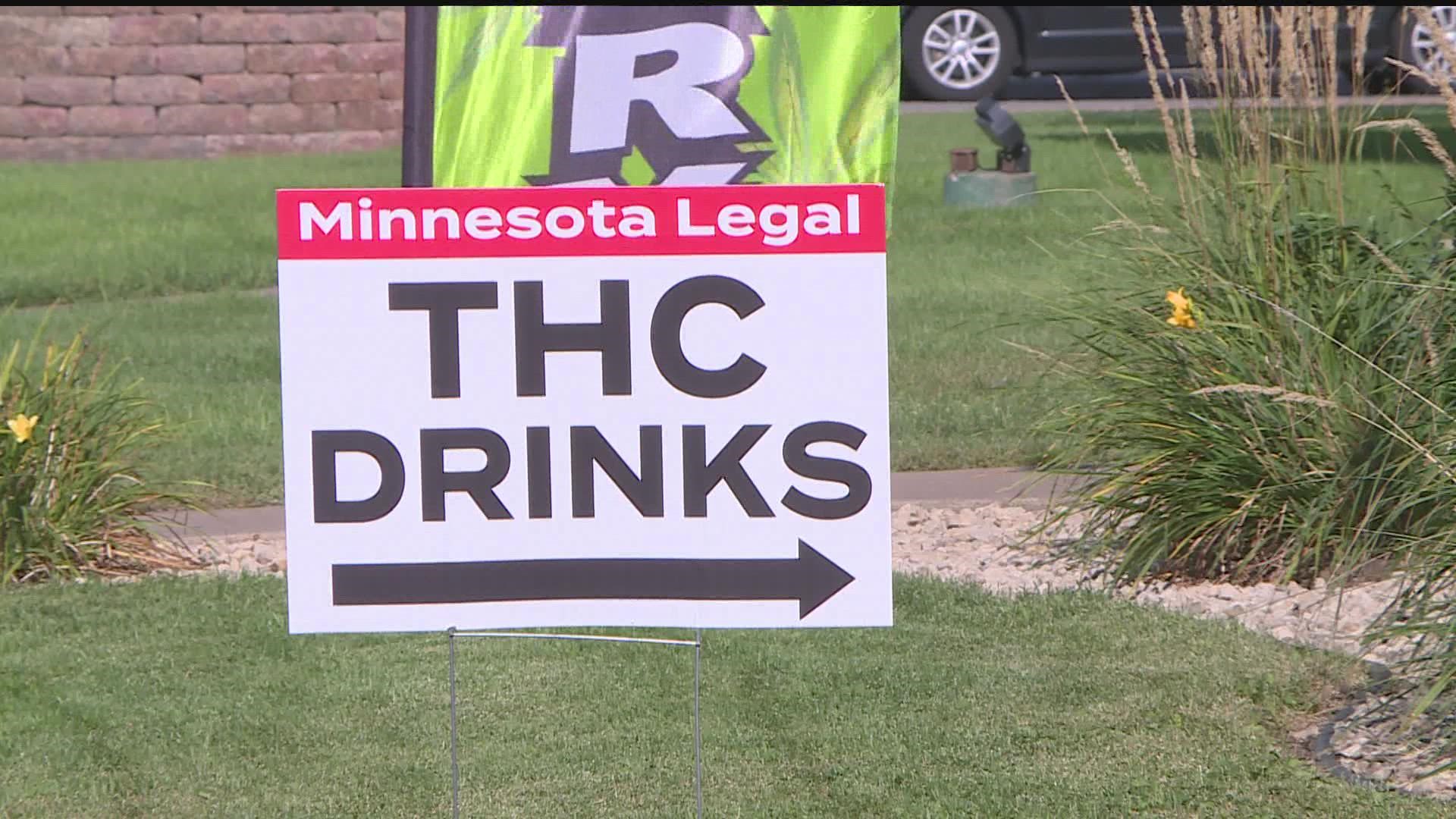ST. CLOUD, Minn. — The St. Cloud City Council passed new regulations on hemp-derived THC products on Monday evening, requiring businesses to obtain licenses in order to sell items like edibles.
While many other Minnesota cities have approved temporary THC moratoriums so that they can study the issue, St. Cloud Mayor Dave Kleis said he believes his city is among the first in the state to set concrete parameters around the sale of these products. The state legislature did not include any such specifications when it legalized hemp-derived THC two and a half months ago.
Under the ordinance approved Monday night, "it will be unlawful for any person to sell at retail any cannabinoid products within the City unless the person holds a retail cannabinoid products license," which will cost $500 annually.
Businesses in St. Cloud will only be allowed to sell the products between 8 a.m. and 10 p.m., and "from time to time, but at least once per year, the City will conduct compliance checks." These compliance checks will involve an underage minor posing as a 21-year-old, to see whether businesses are following the law. Violations may lead to hundreds of dollars in fines, according to the ordinance.
In an interview before the meeting, Mayor Kleis said the city considered drafting a moratorium like other cities, but ultimately decided to introduce more specific guidelines on THC sales.
"The state made a determination of legalization," Kleis said. "Basically, it's, how do we control that at the local level, to make sure nothing is sold illegally?"
Renee Courtney, the St. Cloud City Attorney, said during the council meeting that it's not clear how many businesses are currently selling hemp-derived THC products.
"That's part of the issue. We don't know who is selling it," Courtney said. "That's really the goal here, too, that we want it to be a retail establishment. Not preventing the sale -- they're allowed to sell it -- but we want to make sure it's sold at a fixed location."
John Henry, the owner of ProFusion CBD and Wellness in St. Cloud, said he supports the new licensing requirements.
"I think they're doing it so that everybody is on the same table. Right now, there's no enforcement whatsoever," Henry said. "They don't want people selling the wrong products in St. Cloud. This way, they can enforce it."
However, some business owners are expressing concern about a separate THC-related measure under city consideration. On Tuesday, the Planning Commission will discuss new zoning requirements that would prevent cannabinoid sales within a quarter-mile of any "public park, place-of-worship, and school." A map published by the city shows that these buffer zones would cover a large portion of St. Cloud.
"There are probably at least five-plus businesses that deal specifically with these products, that would probably go out of business if they passed it and didn't give us any type of assistance, being grandfathered in," said Nathan Philippi, chief operations manager for "Mr. Nice Guys" in downtown St. Cloud. "A fourth of a mile is a pretty big distance."
However, in his interview with KARE 11, Mayor Kleis promised that existing businesses will not be impacted by any changes to zoning.
"You can't actually pass somebody out of business," Kleis said. "Nobody would be pushed out based on the zoning requirement. You're grandfathered in, if you're operating before the ordinance changes."
After the Planning Commission makes a recommendation on THC buffer zones, the full city council would still need to approve such a measure.
Watch more local news:
Watch the latest local news from the Twin Cities in our YouTube playlist:

